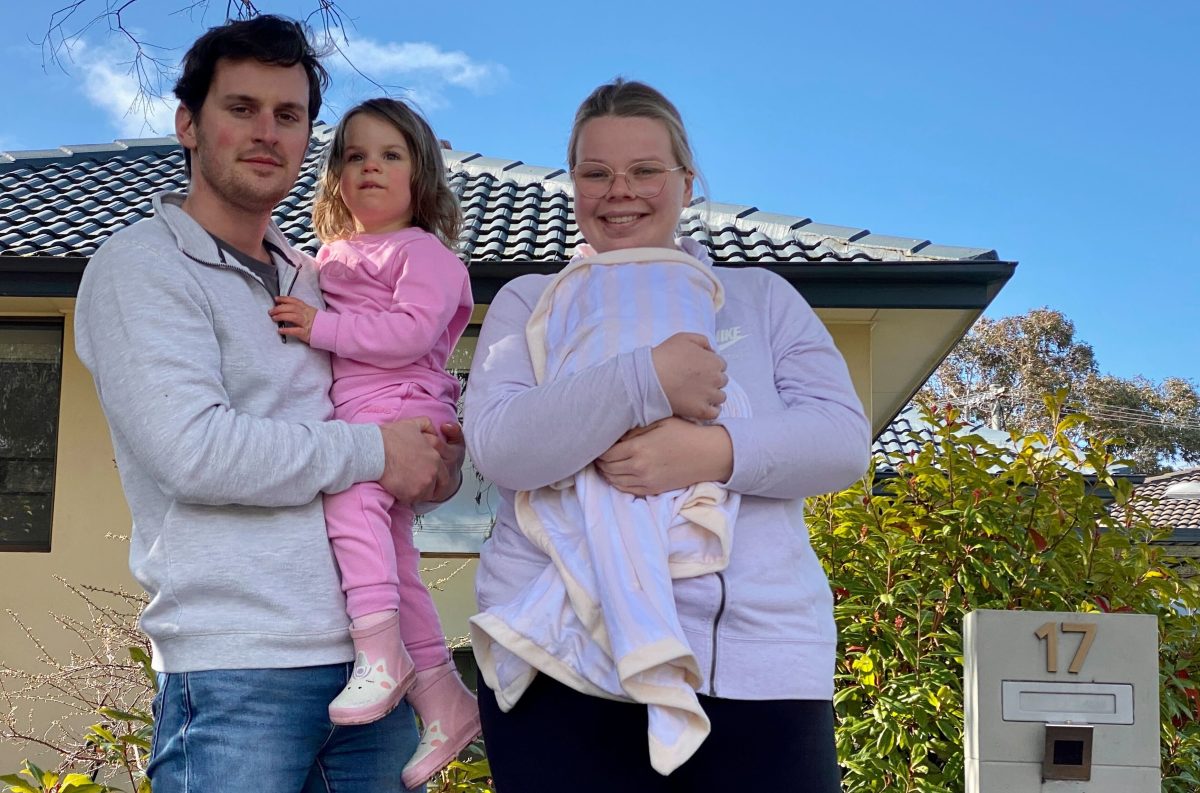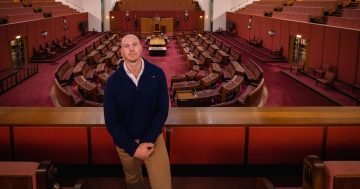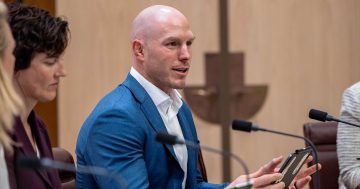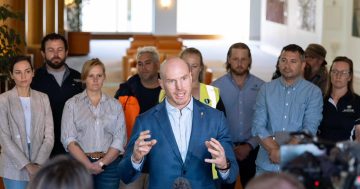
James and Ruth Coleman of Richardson with daughter Elise and new son Lewis: “Having the security of your own home is something we’d definitely like.” Photo: James Coleman.
Potential ACT home buyers have been treated poorly in the Albanese Government’s new shared equity scheme, says Independent Senator David Pocock.
Senator Pocock said the government had not taken into account the national capital’s high property prices by imposing a purchase cap of $750,000, which is $100,000 less than Melbourne and $200,000 less than NSW regional centres such as Newcastle.
He said Canberrans would be unfairly disadvantaged and have their choices limited, and the cap should be increased.
“Canberra is the second most expensive capital city in Australia in which to rent or buy,” Senator Pocock said.
“Our median dwelling price was sitting at over $830,000 in June, well above Melbourne at $760,000, yet our property price cap is $100,000 less.”
Senator Pocock said the government made the same mistake with setting the ACT property price caps for the First Home Guarantee, and data from the National Housing Finance and Investment Corporation suggested this was hindering the uptake rates from first home buyers in the Territory.
“This is not evidence-based policy and it once again unfairly disadvantages people in the ACT trying to get into the housing market,” he said.
“We’ve got a Minister and an Assistant Minister in the current government from the ACT and yet still we see Canberrans being overlooked.”
Senator Pocock also warned that without a significant boost to housing supply, the scheme could just drive up prices.
Under the Help to Buy scheme, which is due to start next year, eligible home buyers will be able to pay a deposit of as little as 2 per cent, with the government contributing up to 40 per cent of the cost of a new home or 30 per cent for existing homes.
They will also not have to pay lenders mortgage insurance.
To be eligible you must be an Australian citizen, at least 18 years of age, have a yearly income of $90,000 or less for individuals, or $120,000 or less for couples, live in the purchased home and must not currently own any other land or property in Australia or overseas, but it doesn’t have to be your first home.

Senator David Pocock: “This is not evidence-based policy and it once again unfairly disadvantages people in the ACT trying to get into the housing market.” Photo: Michelle Kroll.
After two years, participants can start buying back the government’s equity but if income exceeds the annual threshold for two years in a row they may need to repay the government’s contribution in part or in full, depending on the circumstances.
The government says the scheme, a 2022 election promise, will run for four years and support 40,000 low and middle-income families to buy their own homes.
James and Ruth Coleman of Richardson have just added a son to their young family and have been looking at buying a townhouse or apartment that would suit their single-income budget.
Mr Coleman said the scheme was definitely worth inquiring about.
“We’ll ask our mortgage broker about how it might work,” he said.
“Any way of making the Australian dream still a reality despite the current market is something we’re going to go for.”
Mr Coleman said they were like many young families whose parents had owned their own home but then realised that might not be an option for them, so any movement in that direction was welcome.
The Colemans are paying more than $1000 a fortnight in rent and are subject to the vagaries of Canberra’s tough rental market.
“Having the security of your own home is something we’d definitely like,” he said.
But they would be watching the market and interest rates closely before making any commitment.
Real Estate Institute of the ACT CEO Maria Edwards agreed the ACT price cap was out of step with the local market.
“It’s a bit skewed in that Melbourne’s prices are cheaper than ours but we have less borrowing capacity,” she said.
Ms Edwards said at present a Canberra couple on the maximum income of $120,000 combined would have a borrowing capacity of $600,000-650,000 assuming they had no other debt, and they would need to have $16,000-$18,000 saved to cover a deposit and fees.
So the scheme would help, but they would still be looking at a unit or townhouse under the cap and would be competing with other buyers obtaining finance in the usual way.
Ms Edwards said it could suit a small family with one parent working and the other going back to work down the track, or a single-parent family.
“But I think it’s fairly limited in who it is actually going to help,” she said.
Ms Edwards said most working couples in Canberra would earn over that income limit and there were ongoing questions around eligibility such as when incomes rose after the purchase and instability around interest rates.
“Are people going to be able to borrow the extra if their income goes over the limit in two years’ time and interest rates haven’t come down?”
“People have to be very sure that they will continue to afford this in two years’ time,” she said.
Ms Edwards also warned that it could end up pushing prices up in the long run but said the government should be applauded for coming up with different options for people struggling in the market.
Housing Minister Julie Collins did not respond to questions about how the price cap was calculated.





















